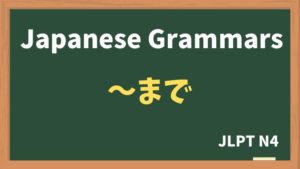
Explanation:〜おかげで
fa-check-circleMeaning
"thanks to"
Used to express gratitude or indicate a positive outcome due to someone or something.
This can also be used for bad results, but it is ironic.
fa-check-circleForm
V(plain form)+ おかげで
イA(plain form)+ おかげで
ナAな + おかげで
Nの + おかげで
fa-check-circlePoints
- Expressing Gratitude or Positive Cause: "〜おかげで" is used when something good has happened, and the speaker attributes that positive outcome to a specific cause.
- Can Be Used for People or Situations: The expression can refer to both people and non-human factors, such as events, conditions, or objects.
- Opposite Expression: The opposite expression is "〜せいで," which is used to indicate a negative outcome caused by someone or something.
fa-check-circleJLPT Level
N3
Sample sentenes
先生のおかげで、行きたかった大学に合格できました。
Thanks to my teacher, I could pass the university of my choice.
薬のおかげで頭痛が治りました。
Thanks to the medicine, my headache is cured.
毎日、日本語で話しかけてくれた日本人の友達のおかげで、私の日本語はよくなりました。
Thanks to my Japanese friend who talks to me in Japanese everyday, My Japanese became good.
たばことお酒をやめたおかげで、健康になった。
Thanks to my decision to stop smoking cigarettes and drinking, I became healthy.
後輩が手伝ってくれたおかげで、仕事が早く終わった。
Thanks to the help of a junior colleague, I finished my work earlier.
たくさん寝たおかげで、元気になりました。
Thanks to a lot of sleep, I got well.
努力したおかげで、プロジェクトが成功しました。
Thanks to my hard work, the project was successful.
友達のおかげで、新しい仕事を見つけることができた。
Thanks to my friend, I was able to find a new job.
Vocabulary
| Japanese |
English | |
| 頭痛 | ずつう | headache |
| 健康 | けんこう | healthy |
| 後輩 | こうはい | junior colleague |
| 努力 | どりょく | effort |






